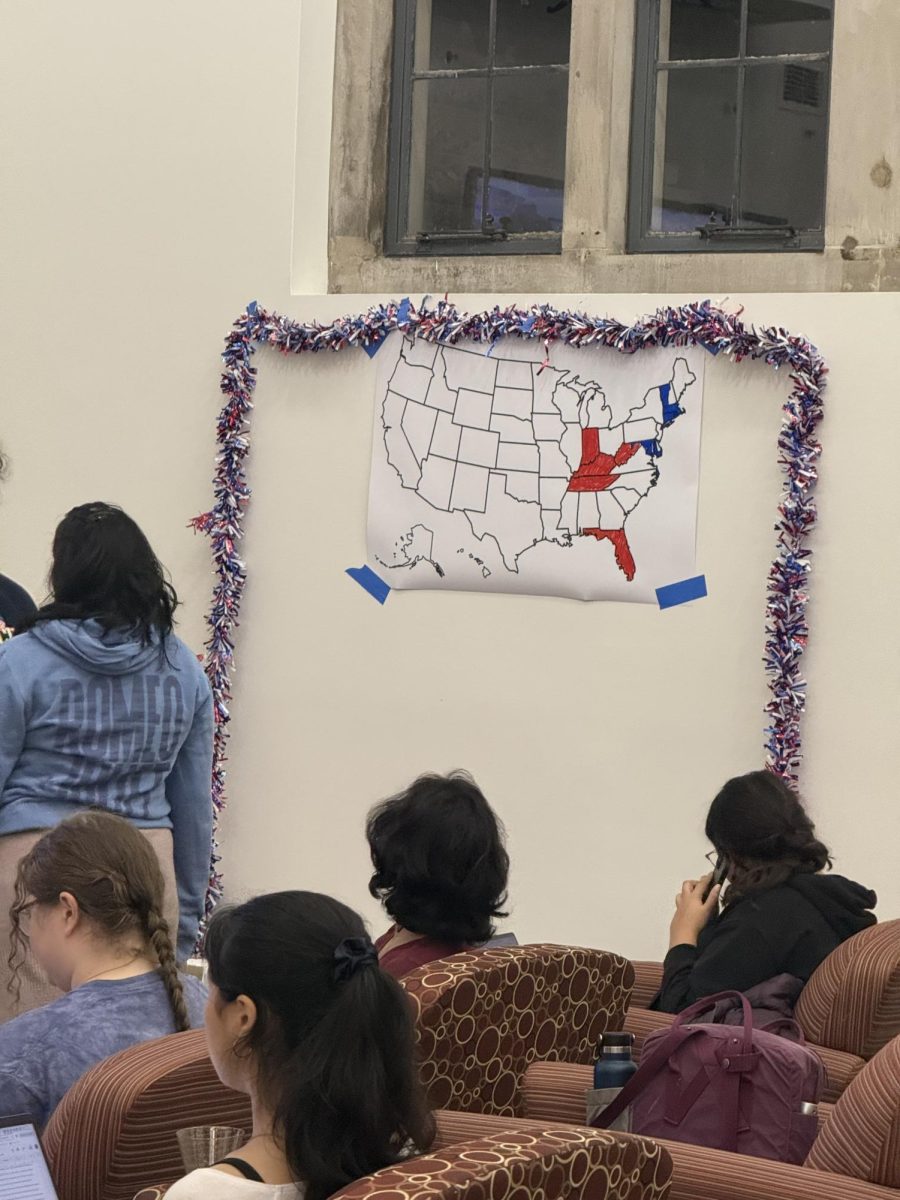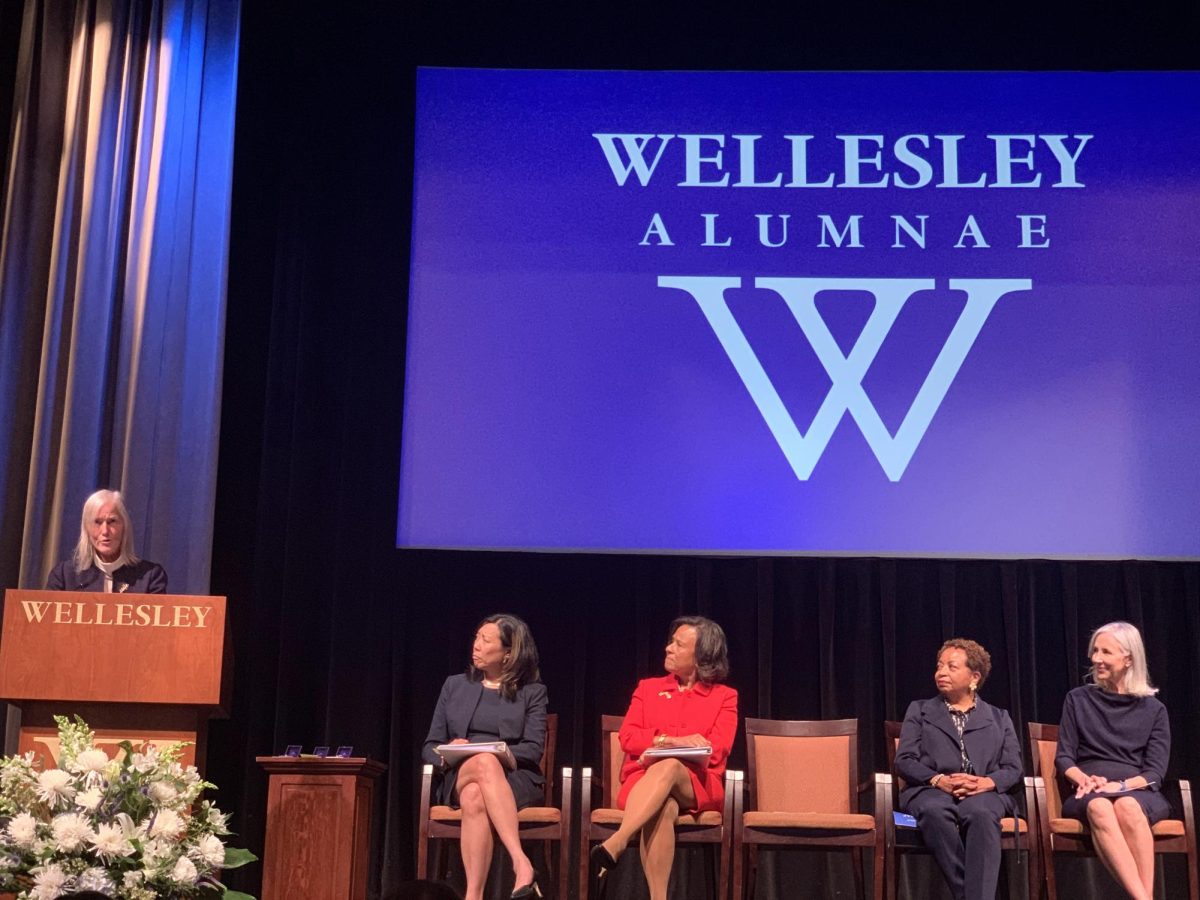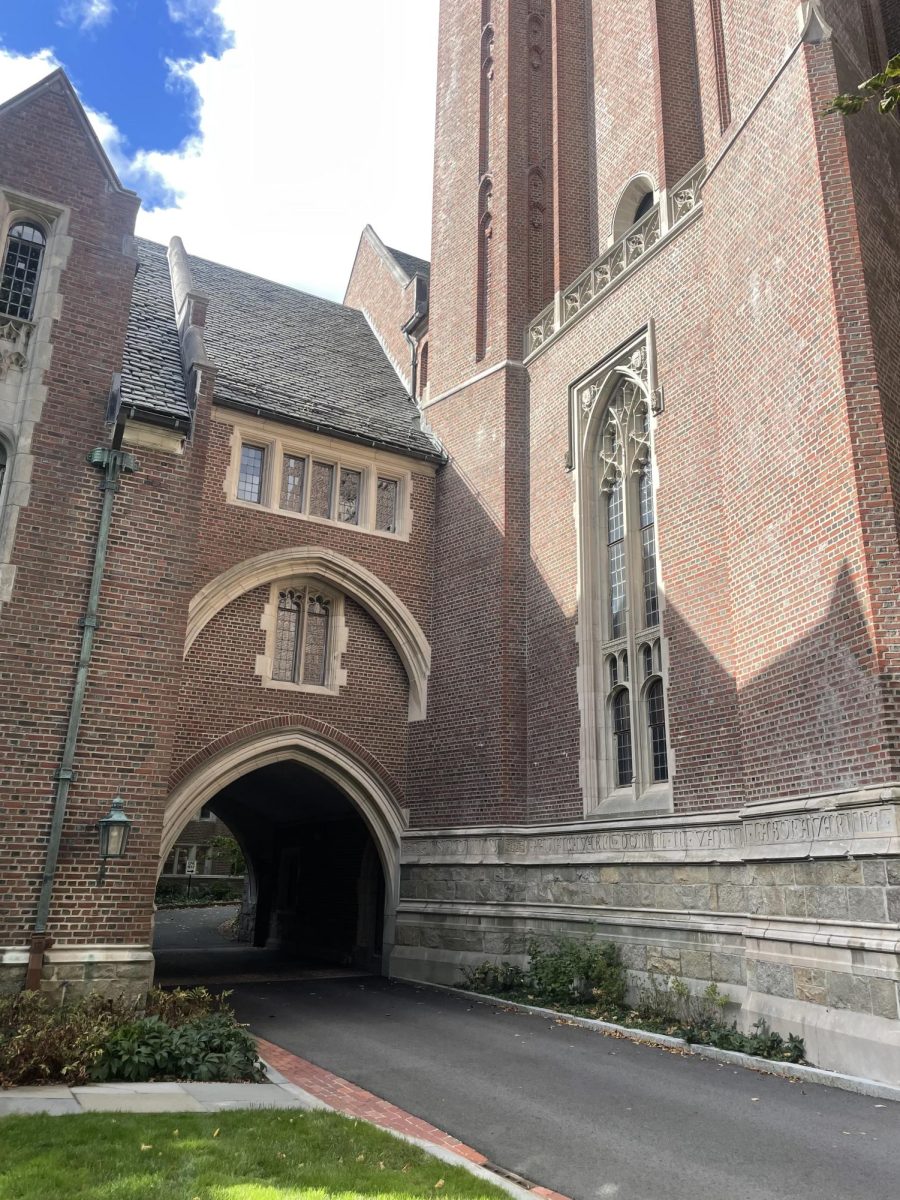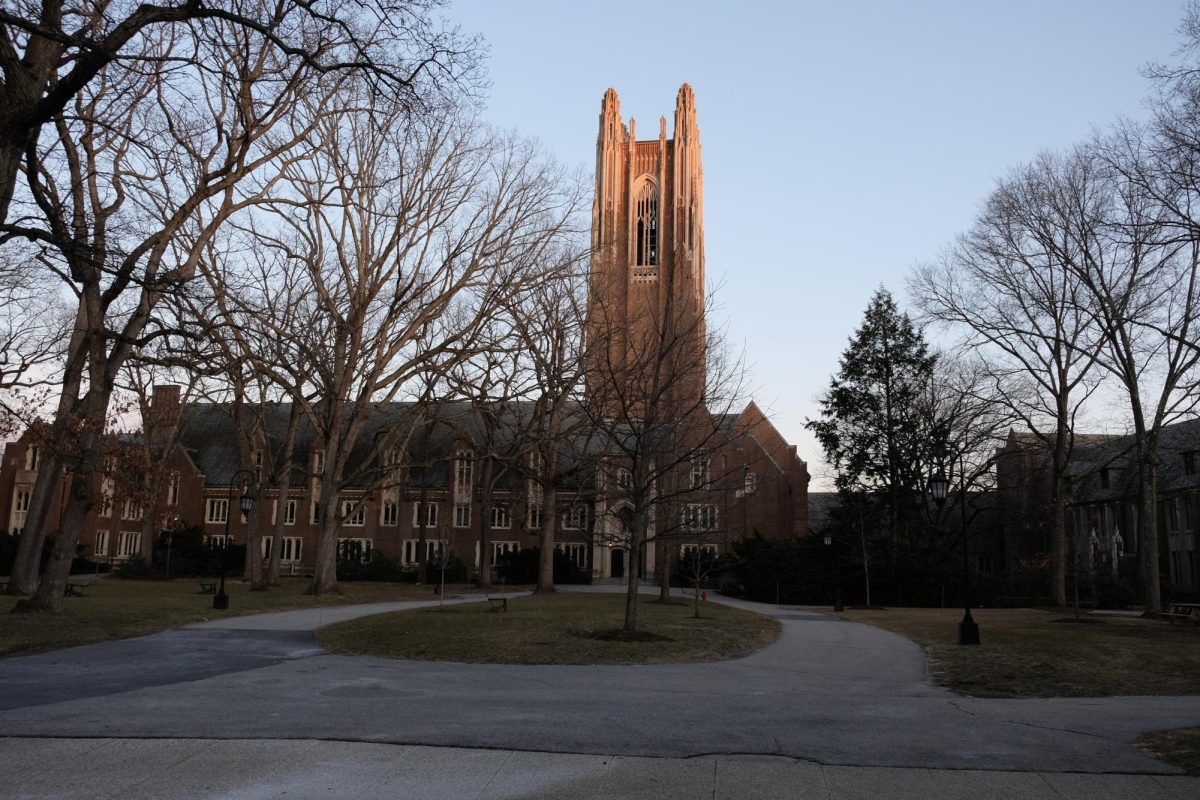By GRACE BENNETT-PIERRE ’16
Staff Writer

Professor Adam van Arsdale pictured
by Sammy Marrus ’16
Assistant Photography Editor
Under updated federal standards, students are required to spend at least 45 hours in each class every semester. The Committee on Curriculum and Academic Affairs (CCAP) hopes to meet this requirement through changes to the current academic schedule.
According to the New England Association of Schools and Colleges’ Fifth-Year Interim Report Manual, the updated standard defines a credit hour as “one hour of classroom or direct faculty instruction and a minimum of two hours of out of class student work each week for approximately fifteen weeks.”
Unlike Wellesley College’s class credit system, which assigns one credit to most classes, the federal standard refers to the more commonly used semester calendar credit hour system. According to the U.S. Department of Education, a standard lecture course counts for three credits in the more common system, while courses requiring more class time are awarded a greater number of credits.
Under the new federal standard, Wellesley falls short on direct faculty instruction, due in part to a shorter, 13-week semester. Lecture courses that meet twice a week for 70-minute lectures demand that students spend only 30 hours in class over a semester, rather than the 45 hours required by the federal government. Other courses, including those that meet three times a week, have attached labs or are intensive language classes, meet the standard in their current form.
The New England Association of Schools and Colleges (NEASC) accredits Wellesley every 10 years. Through the process of accreditation, the NEASC verifies that Wellesley follows nationally recognized guidelines for institutions of higher learning. In preparing for the next accreditation in 2018, Richard French, dean of academic affairs and chair of the CCAP, says that reaching the federal standard for time spent in class is of foremost importance to the committee.
“Over the course of the next five years, there’s going to have to be a lot of discussion about what a credit hour means and how many contact hours there are of direct faculty involvement. And of course, part of a liberal arts college is having direct contact with the faculty, so it’s in some ways ironic that at Wellesley we’re falling short of the federal standard, when that’s one of our highest goals,” French remarked.
In addition to prompting discussion about the amount of time spent in class, compliance with the federal standard raises other issues within Wellesley’s class credit system.
Barry Lydgate, chair of the French department, has taught intensive French courses for 14 years, and believes that the amount of credit assigned to his courses may discourage students from putting forth full effort.
“I expect students in 103 and 203 to work twice as hard as I would expect them to work in 101 and 102 because it’s twice the material and we go twice as fast, so it seems to me, not unfair, but inequitable that students only get 1.25 credits, especially since instructors get 1.5 [teaching] credits,” he said.
Lydgate explains that instructors of intensive language courses, which typically meet four times a week, receive a greater number of teaching credits toward their year-long four-credit load than do instructors with classes that meet only twice a week.
“My concern is that students, although they know intellectually it’s twice the work, won’t want to give the work, because they are not getting twice the credit,” he said.
French acknowledges that discussions about how to meet the new standard will require taking many perspectives into consideration.
“I think we’re at a time when the definition of a credit hour, demand for class time, dissatisfaction with the class schedule in a number of ways, makes it a good conversation for us to have. We’re already at a time when it is very hard for student groups to meet, for faculty departments to meet and for there to be a sense of community and free time.”
French thinks it is unlikely that the College will lengthen the semester to 15 weeks, given the cost savings of the current system. Instead, he suggests that in order to meet the 45 hours per semester requirement, classes may meet three times a week for 60 minutes and the schedule may be shifted so that classes can be held during the current lunch hour. However, he acknowledges that there is much discussion to be had around the issue before a final decision is made.













































